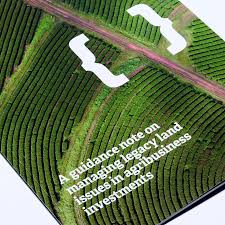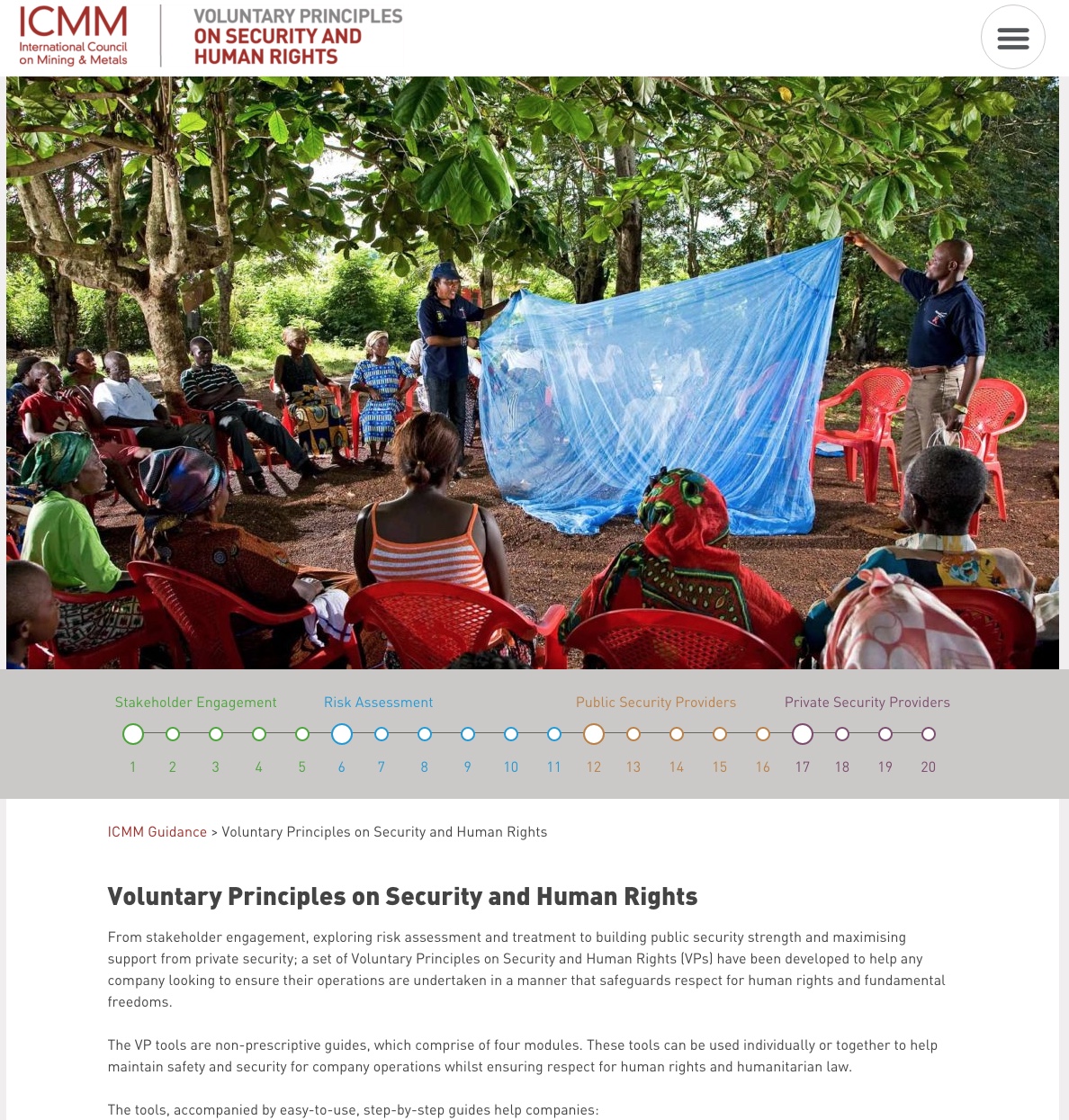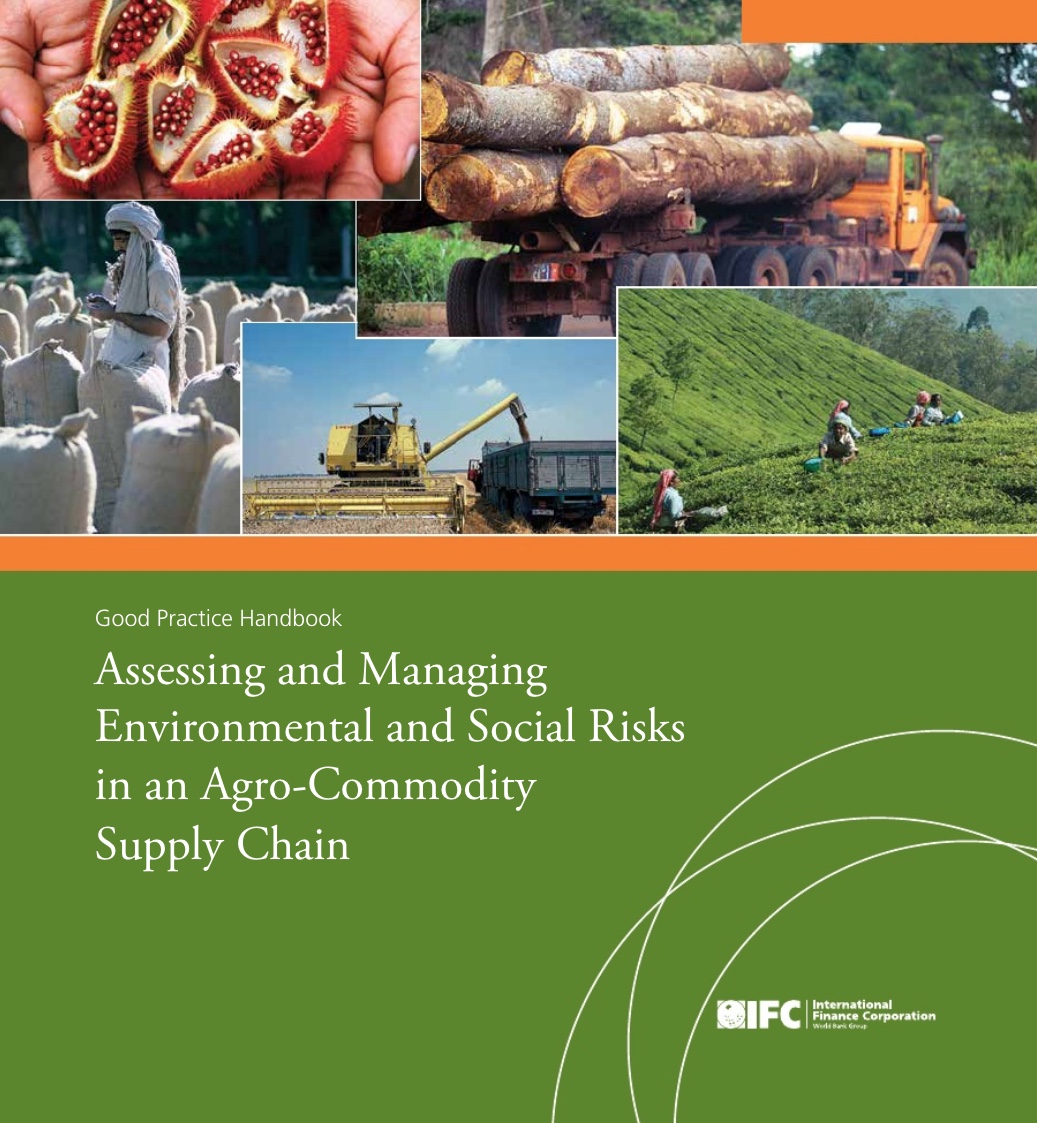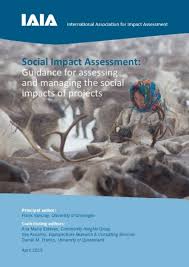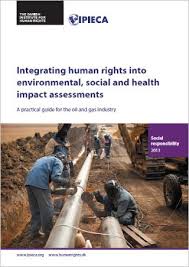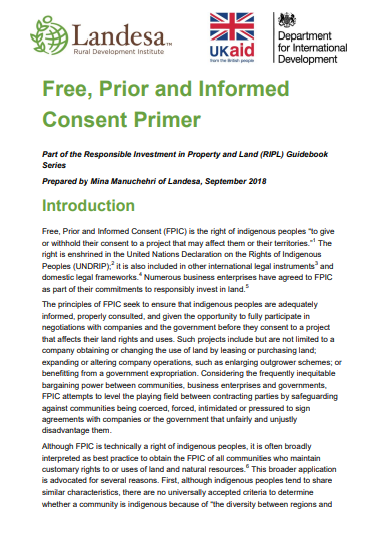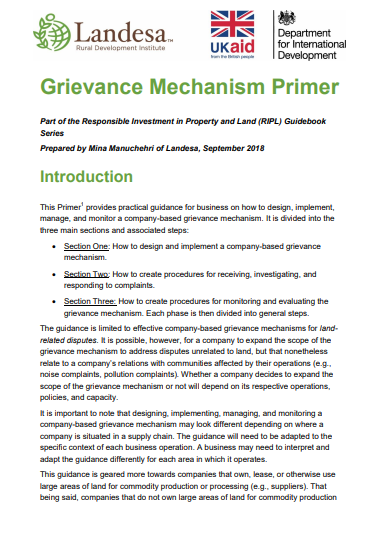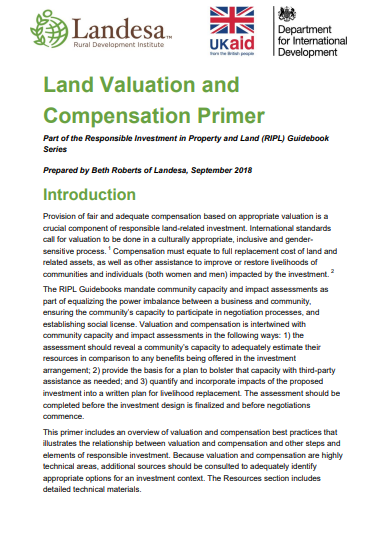Preparing in Advance for Potential Investors - Guide 1 For community members and advocates interacting with potential investors
This guide for legal advisors, community leaders and members explains how communities can prepare for interactions with potential investors, including making decisions about whether or not to negotiate. It can be used to help a community: (a) prepare before an investor arrives and (b) decide whether or not to enter into discussions or negotiations with an investor that has arrived. It should be used before any negotiations start.




